alumNIGHTS at the Chinese Canadian Museum
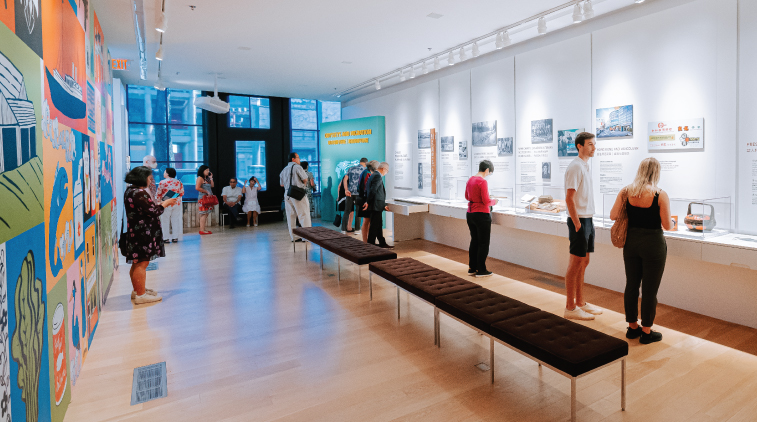
Did you know the 1923 Chinese Immigration Act prohibited Chinese immigration in Canada until 1947? And that it required Canadian-born Chinese to be issued “immigration” cards? This dark but largely forgotten period left a voluminous paper trail that is finally being revealed 100 years later. The Paper Trail to the 1923 Chinese Exclusion Act at the Chinese Canadian Museum is a national exhibition and archive featuring hundreds of identity documents used to track Chinese individuals in Canada. Amid haunting stories of loss and despair, the show offers powerful examples of courage and perseverance. Join fellow UBC alumni on an in-depth, behind-the-scenes tour with curator Catherine Clement and exhibit guides Naomi Louie (BA’19, MA’23) and Victoria So (UBC student) to learn more about this deeply impactful period in our nation’s history.
This event is presented in partnership with the Centre for Asian Canadian Research and Engagement, the Asian Canadian and Asian Migration Studies Program, and the UBC faculties of Arts, Education, and Medicine, and the UBC Sauder School of Business.
Host
Fred Lee, BA’88 (he/him/his) — Senior Director, Alumni Engagement, alumni UBC
Speaker
Catherine Clement (she/her) — Curator, The Paper Trail to the 1923 Chinese Exclusion Act
Exhibition guides
Naomi Louie, BA’19, MA’23 (she/her) — Exhibit Guide
Victoria So (she/her) — UBC student
Wednesday, May 1, 2024
6:30pm–8:30pm
Chinese Canadian Museum
51 East Pender Street
Vancouver, BC
V6A 1S9 – map
Tickets: $20 for alumni, $25 for guests. Includes pre-reception, admission, and exhibit tour.
Tickets must be purchased by UBC alumni.
The registration deadline is Sunday, April 28, 2024 (or until fully booked).
SOLD OUTQuestions? Please contact alumni.events@ubc.ca.
Host Biography
Fred Lee, BA’88
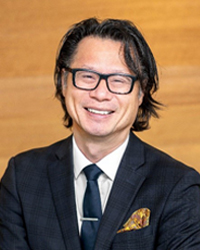 Fred Lee (BA’88) is the senior director of Alumni Engagement at alumni UBC. His team leads efforts to increase engagement and build influence among UBC’s community of more than 60,000 students on two campuses, and 380,000 global alumni in more than 140 countries. The Development and Alumni Engagement portfolio launched FORWARD, the campaign for UBC, which aspires to raise over $3 billion in philanthropic support and has engaged more than 150,000 alumni. He also serves on many committees, including UBC’s CampOUT program for 2SLGBTQIA+ youth. In 2020, he received the UBC President’s Staff Award for Equity, Diversity, and Inclusion.
Fred Lee (BA’88) is the senior director of Alumni Engagement at alumni UBC. His team leads efforts to increase engagement and build influence among UBC’s community of more than 60,000 students on two campuses, and 380,000 global alumni in more than 140 countries. The Development and Alumni Engagement portfolio launched FORWARD, the campaign for UBC, which aspires to raise over $3 billion in philanthropic support and has engaged more than 150,000 alumni. He also serves on many committees, including UBC’s CampOUT program for 2SLGBTQIA+ youth. In 2020, he received the UBC President’s Staff Award for Equity, Diversity, and Inclusion.
Speaker Biography
Catherine Clement
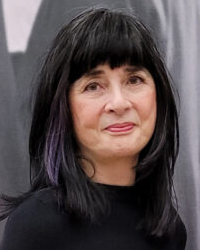 Catherine Clement is a community historian. She developed, curated, and designed The Paper Trail to the 1923 Chinese Exclusion Act. Previously, she was best known for her 10-year search uncovering the hidden works of Yucho Chow, Vancouver’s first and most prolific Chinese photographer. In addition to a 2019 exhibition and archive, her book, Chinatown Through a Wide Lens: The Hidden Photographs of Yucho Chow, received the 2020 BC Lieutenant Governor’s Medal for Historical Writing and the 2020 Vancouver Book Award. The UBC Initiative for Student Teaching and Research in Chinese Canadian Studies (INSTRCC) supported her on both projects.
Catherine Clement is a community historian. She developed, curated, and designed The Paper Trail to the 1923 Chinese Exclusion Act. Previously, she was best known for her 10-year search uncovering the hidden works of Yucho Chow, Vancouver’s first and most prolific Chinese photographer. In addition to a 2019 exhibition and archive, her book, Chinatown Through a Wide Lens: The Hidden Photographs of Yucho Chow, received the 2020 BC Lieutenant Governor’s Medal for Historical Writing and the 2020 Vancouver Book Award. The UBC Initiative for Student Teaching and Research in Chinese Canadian Studies (INSTRCC) supported her on both projects.
Exhibition Guide Biographies
Naomi Louie, BA’19, MA’23
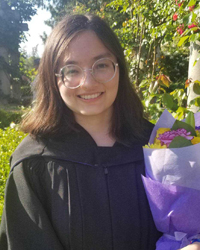 Naomi Louie (BA’19, MA’23) is a recent Master of Arts graduate from UBC’s Department of History. Her research focuses on North American immigration history. Over the last two years, she worked as a curatorial assistant on the Paper Trail Project, helping to collect and process Chinese Exclusion Act certificates. She also wrote stories to be featured in the exhibition. Currently, she is continuing her work on the Paper Trail project at the Chinese Canadian Museum in Vancouver’s Chinatown. She also works as a researcher for the City of Burnaby to facilitate reconciliation with Burnaby’s Chinese Canadian community.
Naomi Louie (BA’19, MA’23) is a recent Master of Arts graduate from UBC’s Department of History. Her research focuses on North American immigration history. Over the last two years, she worked as a curatorial assistant on the Paper Trail Project, helping to collect and process Chinese Exclusion Act certificates. She also wrote stories to be featured in the exhibition. Currently, she is continuing her work on the Paper Trail project at the Chinese Canadian Museum in Vancouver’s Chinatown. She also works as a researcher for the City of Burnaby to facilitate reconciliation with Burnaby’s Chinese Canadian community.
Victoria So
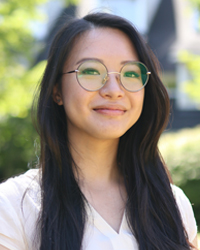 Victoria So is a second-generation settler on the unceded territories of xʷməθkʷəy̓əm (Musqueam), Skwxwú7mesh (Squamish), and səlilwətaɬ (Tsleil-Waututh) First Nations. She is majoring in History and minoring in Asian Area Studies at UBC. With familial roots in the Poon Yue (番禺) district in Guangdong, China, she learned about the importance of culturally-relevant storytelling and accessible learning from her cultural heritage. While her studies allow her to consider how history can be represented in different spheres, her passion in history and storytelling is rooted in family discussions and stories from elders.
Victoria So is a second-generation settler on the unceded territories of xʷməθkʷəy̓əm (Musqueam), Skwxwú7mesh (Squamish), and səlilwətaɬ (Tsleil-Waututh) First Nations. She is majoring in History and minoring in Asian Area Studies at UBC. With familial roots in the Poon Yue (番禺) district in Guangdong, China, she learned about the importance of culturally-relevant storytelling and accessible learning from her cultural heritage. While her studies allow her to consider how history can be represented in different spheres, her passion in history and storytelling is rooted in family discussions and stories from elders.




